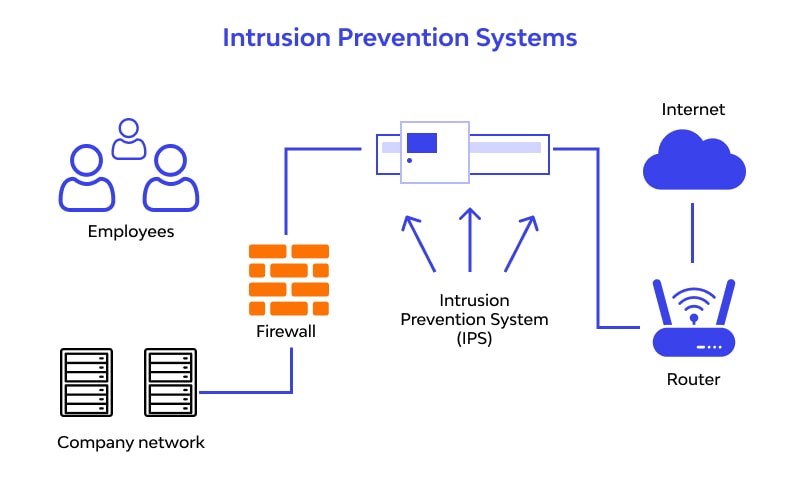
In today’s interconnected world, the integrity of our digital lives hangs by a thread. Cyber attacks can occur at any time, leaving companies scrambling to protect their critical data.
Research from Cybersecurity Ventures indicates that cybercrime damages are anticipated to hit $10.5 trillion annually by 2025. If left unchecked, this burgeoning crisis could cripple our global digital infrastructure, tarnishing the collective trust in the internet.
“Secure online communications is no longer an option, a luxury or a nice-to-have. This applies to individuals as well as businesses, notes Chris Power, CEO of Power Consulting Group. “Just as an individual should never use their computer without virus scanning, no business should be use the internet without a fully vetted security plan. The risks of fraud, downtime, data loss, and reputation harm are just too great.”
As you navigate through the different types of network security, it’s essential to understand the layers and measures that must be in place to ensure a well-protected digital network.
In this article, we’ll explore five types of network security your business can leverage, and their importance.
Use the Different Types of Network Security to Your Advantage
Prevent intrusion and protect your sensitive data with help from Power Consulting.
Understanding the Top 5 Network Security Types and Their Importance
1. Firewall Security: Your First Line of Defense
An increasing number of businesses are relying on next-generation firewall protection. As a result, the global Firewall as a Service (FWaaS) market is expected to grow by $2.3 billion by 2025, with a compound annual growth rate (CAGR) of 23.8%.
The foundation of network protection lies in firewall security. Imagine it as your digital property’s main gate, meticulously scrutinizing incoming and outgoing network traffic to thwart unauthorized access. It employs both hardware and software to keep your data protected.
From a practical standpoint, regularly update your firewall rules to match the evolving digital landscape. Routinely review the logs to identify any suspicious activity, enabling you to react promptly to any potential threats.
2. Antivirus and Antimalware Software: Your Digital Bodyguard
One of the most common types of network security is antivirus and antimalware software. This software acts as your personal bodyguard, protecting your network from malicious software and detecting over 560,000 new types of malware daily.
The most actionable advice here is simple: ensure your antivirus software is always updated with the latest virus definitions. Conduct regular scans and pay attention to the software’s quarantine and removal actions
3. Virtual Private Network (VPN): Your Personal Tunnel
A virtual private network (VPN) provides a secure tunnel for your data to travel through the internet, away from prying eyes.
It’s an essential tool in the modern digital world, especially for remote workers and businesses handling sensitive information. In fact, a study showed that 54% of businesses said they felt secure while using a VPN.
To maximize VPN benefits, use reliable service providers that offer strong types of encryption in network security. Regularly update your VPN software to take advantage of new security features.
4. Intrusion Prevention Systems (IPS): The Silent Guardians
One of the important types of scanning in network security is an Intrusion Protection System (IPS). Think of an IPS as your network’s Secret Service, working behind the scenes to detect and prevent malicious activities.
These systems analyze your network traffic, identifying potential threats using behavioral analytics and anomaly detection.
To leverage an IPS, you need to keep the systems updated with the latest threat definitions. Check the reports regularly to understand what the system is doing and adjust the sensitivity levels based on the threat landscape.

Source: Wallarm
5. Wireless Security: Protecting Your Invisible Borders
Wireless security ensures the safety of your network’s invisible borders. Implementing strong encryption, network segmentation, and access control can prevent unauthorized devices from gaining access to the network.
You can enhance your wireless security by frequently updating your network’s SSID and password. Enable network encryption and regularly audit your connected devices for any anomalies.
A Quick Comparison of the 5 Network Security Types
| Network Security Type | Main Function | Benefit |
| Firewall Security | Monitors and controls network traffic | Prevents unauthorized access |
| Antivirus and Antimalware Software | Scans and removes malicious software | Protects against viruses and malware |
| Virtual Private Network (VPN) | Creates a secure data tunnel | Preserves privacy and data integrity |
| Wireless Security | Secures wireless networks | Prevents unauthorized network access |
| Intrusion Prevention Systems (IPS) | Detects and prevents threats | Protects against unknown threats |
| Interested in learning more about network security? Check out these blogs: |

Eliminate Time-Consuming IT Problems With a Proven Partner
Mastering these different types of network security goes a long way in securing your digital assets. From firewall security to wireless protection, each layer adds a vital level of defense.
As a leading network security services provider, Power Consulting has helped companies like yours support and secure their networks since 1991. We have a complete offering of IT managed services, including support, security, strategic recommendations, network monitoring, system maintenance, backup, and more.
We are ready to assist you with support, security, and cloud strategy. Contact us today to schedule a free consultation and learn how we help your business and your network achieve secure growth.
Access Reliable IT Services in New York and New Jersey
|




